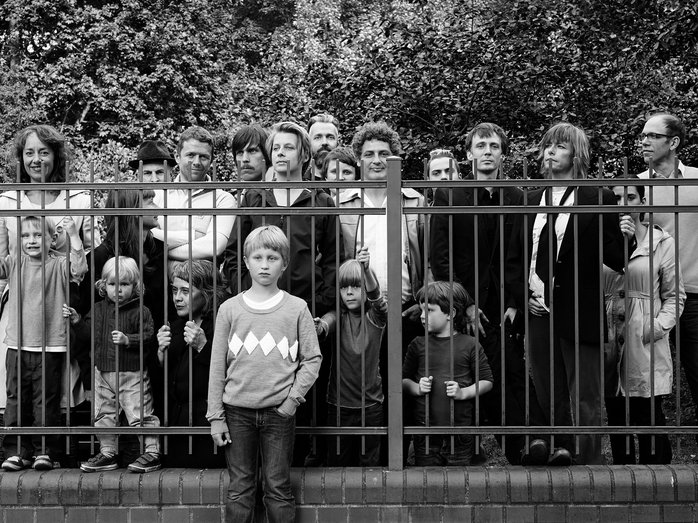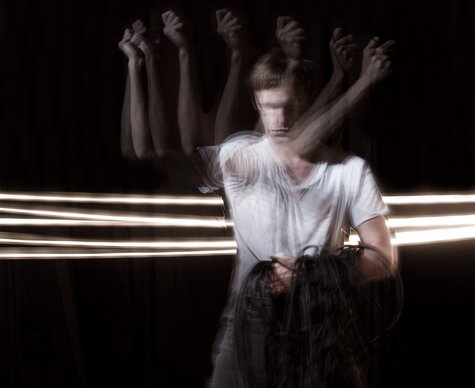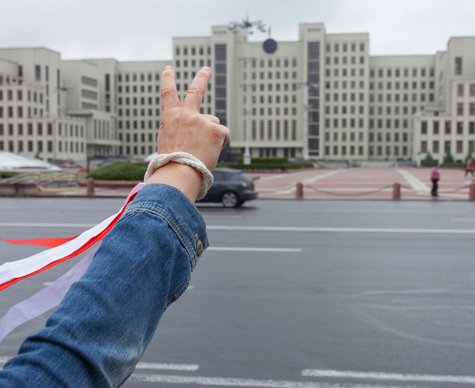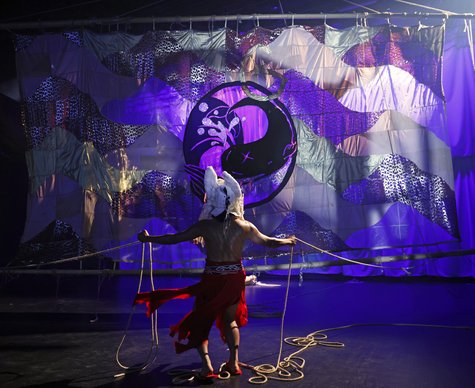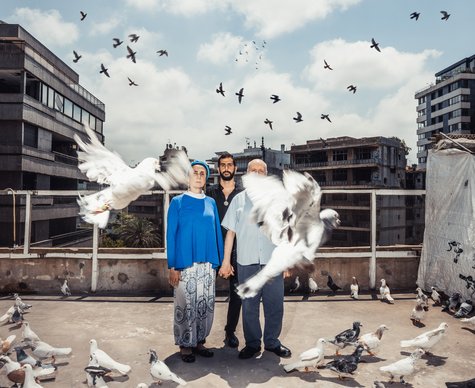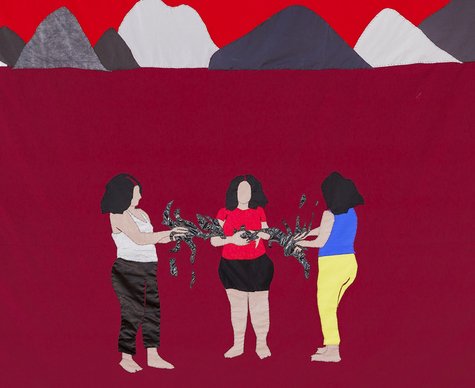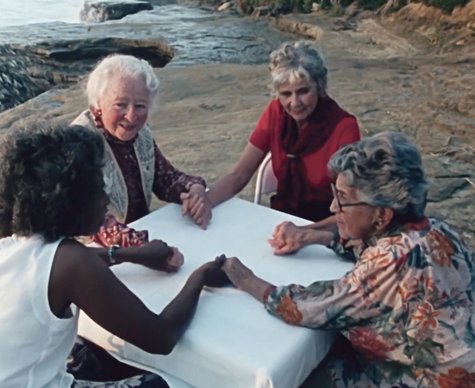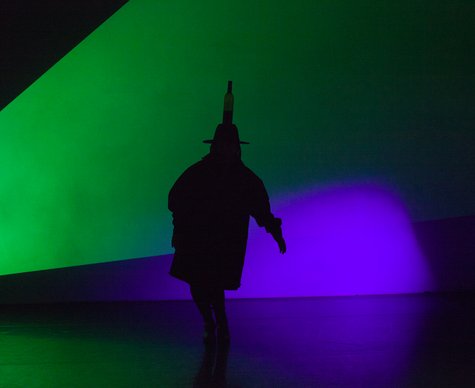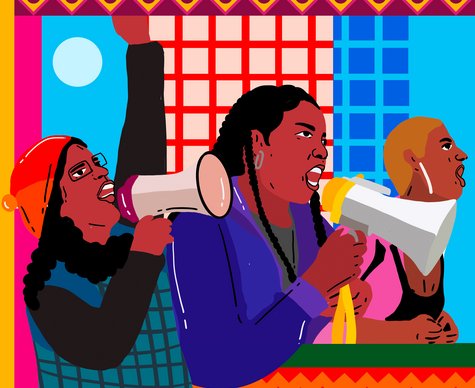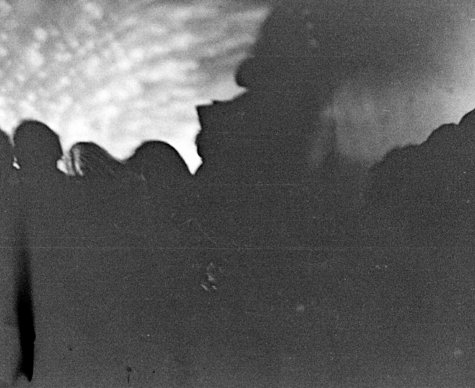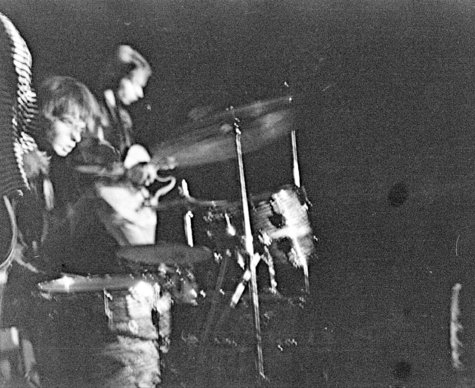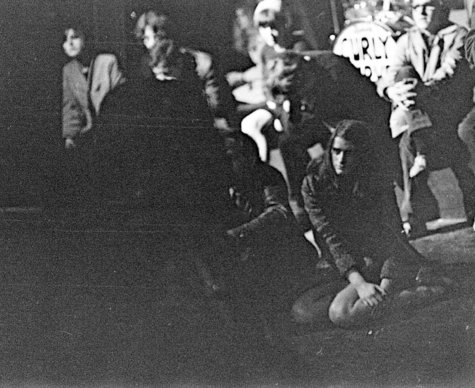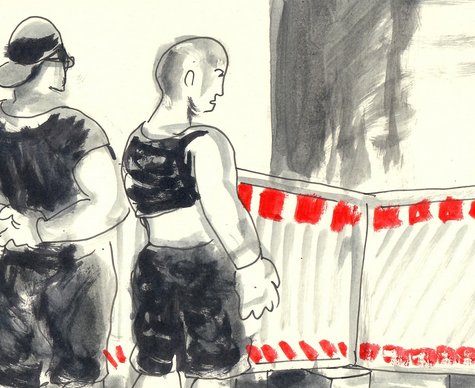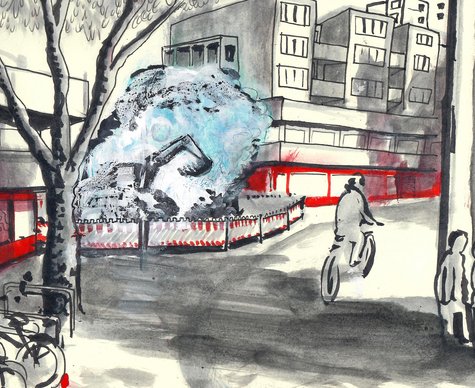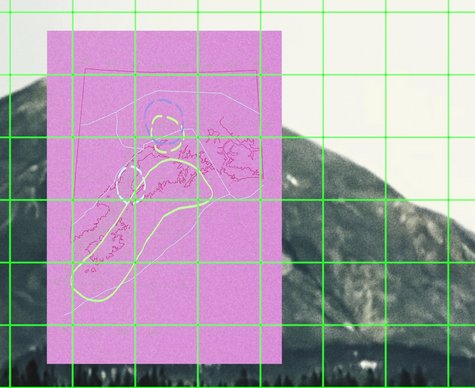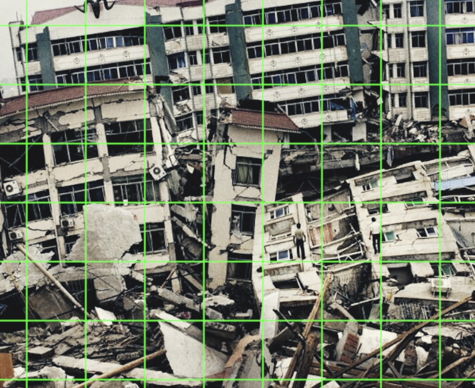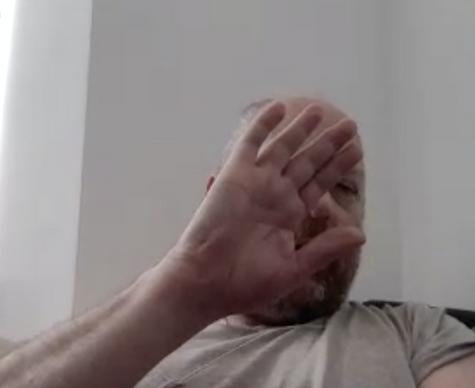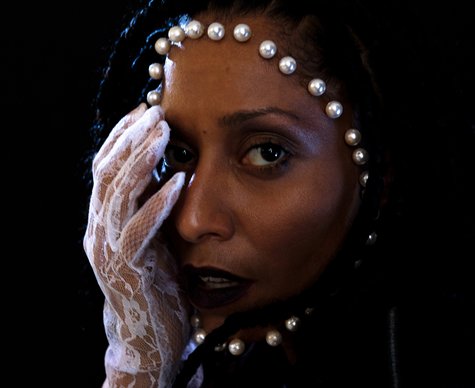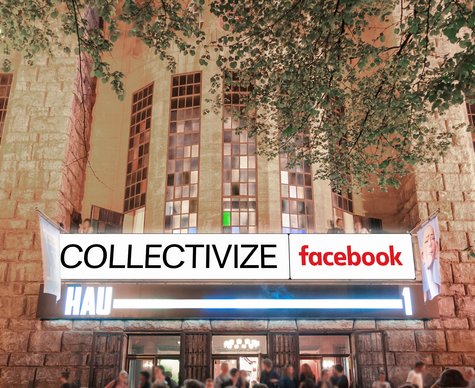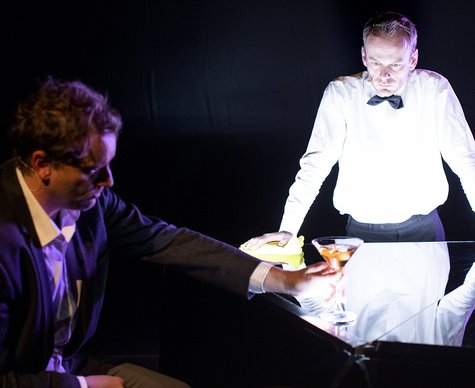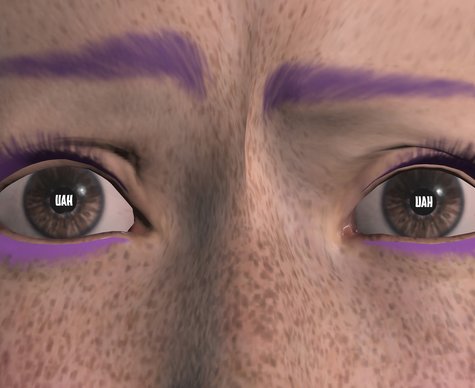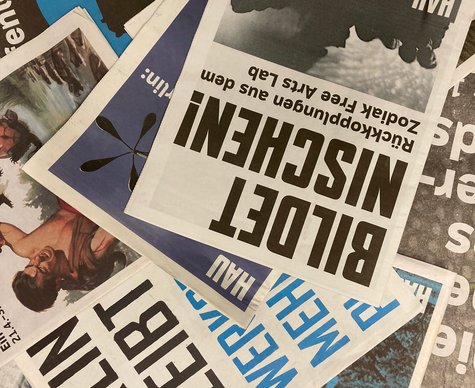One section of the films in the programme looks at the question of the effects of work on people and vice versa, whether it can be represented in film at all and what images of work and social reality manifest in and through film. In one way represented through the actual working conditions behind the camera, in another through the subject matter represented in front of it, sometimes both. Another section of films is about visions and obsessions, alternatives, wrong turns and the abyss.
22.11., HAU2
17:00
Warnung vor einer heiligen Nutte
Dir: R.W. Fassbinder, BRD 1970, 99', feature film, German / English original version with English subtitles
FREIgestellt
Dir.: C. Strigel, D 2012, 90', documentary, German original version
19:00
Ende einer Kommune
Dir.: J. v. Mengershausen, BRD 1970, 50', b/w, documentary, German original version
The Battle of Orgreave
Dir.: M. Figgis, UK 2001, 61', documentary, English original version
20:15
From Marks and Spencers to Marx and Engels
Dir.: amber films, GDR/UK 1988, 58', documentary, German/English original version with English subtitles
20:30
PETRA
Dir.: hangover ltd.*, D 2003, 73', DV, feature film, original German version with English subtitles
21:30
Mit Ikea nach Moskau
Dir.: M. Chauvistré, M. Pucitta, D 2000, 90', documentary, German / Russian original version with English subtitles
22:00
KISS
Dir.: Andy Warhol, USA 1963, 50', experimental silent film (selected film reel 12')
On the films
Warnung vor einer Heiligen Nutte (Beware of a Holy Whore)
DIR: R.W. Fassbinder, BRD 1970, 99', motion picture, ger./en., OmeU
In a Spanish seaside hotel a film crew is waiting for the director, the star and the script to appear. While waiting, a testy mixture of competitiveness, boredom and vanity develops between the actors and the technicians. When the despotic director finally shows up, he starts ruthlessly using the organisational and interrelational chaos for his own ends.
FREIgestellt (Let free)
Dir.: Claus Strigel, D 2012, 90', documentary, ger. OV
Welcome to Paradise – ever since the expulsion from the Garden of Eden, humanity has worked to achieve the paradisical state of abundance without work. Today, at the beginning of the post-industrial era, the vision is threatening to become a reality. Strange outcomes ensue when a society based on work is threatened with work running out. While some enjoy climbing over the ruins of past industries, others serve time training to work without work.
The film is a journey into a future that has long since started: the end of the work based society. But every ending is also the starting place for ideas, visions and workable pilot projects.
Ende einer Kommune (The End of a Commune)
DIR: Joachim von Mengershausen, BRD 1970, 50', s/w, documentary, ger. OV
Joachim von Mengershausen, talks about the film:
"The End of a Commune is quite an old film. Fassbinder had taken over the Kellertheater in Munich and at the same time Liebe ist Kälter Als der Tod (Love is Colder than Death) was nominated for a prize at the 1969 Berlinale to everyone's great surprise. With a 2m tall cameraman, on loan to me with a camera and 16mm film stock from SDR (Süddeutsche Rundfunk – South German TV), we filmed the performances by the Munich theatre group calling themselves antiteater in June / July in Munich, Berlin and Bremen.
Fassbinder's piece Paradise Now was performed in the studio at the Munich Kammerspiele, then in the Forumtheater on Kurfürstendamm in Berlin to muted success and then, after the explosive premiere of Love is Colder than Death at the Zoopalast, travelled to Bremen where the ensemble of the city theatre under the director Kurt Hübner were rehearsing Fassbinder's adaptation of Goldonis Caféhaus. After Fassbinder and his actors had watched half an hour of the rehearsal by the Bremen company, Fassbinder went to the director and offered to take over the premiere with his people. Surprised and fascinated at the same time, Hübner agreed.
This is more or less what is shown in the film without commentary. At the time I was fascinated by the thought of making theatre in the spirit of a commune, and how someone came along and without any resistance from those involved, was able to take the whole enterprise, turn it around and stand it on its head. That freedom of thought at the time so rapidly changed back into authoritarian thinking and actions."
The Battle of Orgreave
DIR: Mike Figgis / Jeremy Deller, UK 2001, 61', documentary, en., OV
In 1984 the National Union of Mineworkers went on strike. The dispute lasted for over a year and was the most bitterly fought since the general strike of 1926, marking a turning point in the struggle between the government and the trade union movement.
On 18 June of that year, the Orgreave coking plant was the site of one of the strike’s most violent confrontations. It began in a field near the plant and culminated in a cavalry charge through the village of Orgreave.
Jeremy Deller’s The Battle of Orgreave, staged seventeen years later, was a spectacular re-enactment of what happened on that day. It was orchestrated by Howard Giles, a historical re-enactment expert and the former director of English Heritage’s event programme. More than 800 people participated in the re-enactment, many of them former miners, and a few former policemen, reliving the events from 1984 that they themselves took part in. Other participants were drawn from battle re-enactment societies across England.
The Battle of Orgreave was filmed by Mike Figgis for Artangel Media and Channel 4, and aired on Sunday, 20 October 2002. The film intercuts dramatic photographic stills from the clashes in 1984 with footage of the clashes re-enacted in 2001, together with moving and powerful testimonies, to tease out the complexities of this bitter struggle.
This project was supported by Arts Council England, Special Angels and The Company of Angels. The film The Battle of Orgreave is included in The Artangel Collection.
From Marks and Spencer to Marx and Engels
DIR: Amber Films, DDR/UK 1988, 58', documentary, ger./en., OmeU
October 1987, Rostock, German Democratic Republic. A distinctly unconventional crew of western film-makers have managed to negotiate access to the communist state to work on their latest project, a story about everyday life in the east. But they are not there to score cheap political points about the two sides in the cold war. Their philosophy of let things speak for themselves is about to be tested in a society where every move needs to be politically interpreted.
When Amber Films produced the film, From Marks and Spencer to Marx and Engels, they insisted on a film without commentary, and in negotiations with DEFA, the state-run film production organisation, argued for unrestricted access to 2 groups of local workers. One was the all-woman brigade of crane operators in the local state-run shipyard, the Warnowwerft, the other the members and owners of the local independent fishing cooperative, the Fischereiproduktionsgenossenschaft Warnemünde, or FPG. In the end, Amber and the GDR authorities struck a deal that allowed a film crew from DEFA to shoot complimentary material about Amber's home town of Newcastle, in what was at first thought to be a joint venture. In a throwback to 1950's thinking about "real living socialism", they were confident that the full employment and comprehensive social provision of the GDR would easily outshine the dire unemployment and collapsing social fabric of the north of England under Margaret Thatcher.
But the wildly differing approaches of the two film teams made a joint venture impossible. In the end, two back-to-back films were made, one made without comment, a window on the worlds of two groups of East German workers, the other a portrait of Tyneside with a commentary that delivered a clear political lesson about capitalism.
Broadcast in the UK by Channel 4, and toured in the GDR in cinemas around the country, by the time the two films were being screened in 1988 things were hotting up in the GDR, as the exodus to Hungary began. The authorities were getting nervous about the Amber film. One advertised screening in Schwerin was switched at the last minute, with the DEFA film being shown instead, eliciting anger from a group of farming apprentices who had turned up. In keeping with the times, there was an explosion of debate about the story behind the whole event.
PETRA
DIR: hangover ltd.* (Christine Groß, Sophie Huber, Ute Schall, Tatjana Turanskyj), D 2003, 73', motion picture, ger., OmeU
"…You know what? You're asleep and you're in a feverish delirium, in a fever of excitement… frenzied… and you have a hot dream, something wet, you know what I'm getting at, we've done it before… sexed up…that's how it has to come out of you…"
Petra is a manic workaholic. Unable to communicate other than through her work, she directs Teddy, Kim and Hannah day and night to act out her latest ideas, fantasies and obsessions. PETRA is a film about artistic exploitation, unattained desire and the issues of living exclusively through artistic expression in an otherwise hermetic world. PETRA is the second film by hangover ltd.*, a Berlin film collective founded by Christine Gross, Sophie Huber, Ute Schall, Claudia Splitt and Tatjana Turanskyj in 2001. Until their separation in 2007, the collective produced three feature films, the award winning short film Remake and a live-film performance for Volksbühne im Prater. Its members continue working as filmmakers.
Mit Ikea nach Moskau (To Moscow with Ikea)
DIR.: Michael Chauvistré & Miriam Pucitta , D 2000, 90', documentary, ger./rus., OmeU
The first Russian branch of IKEA was opened on 22 March 2000 in the Moscow suburb of Chimki. Manuela and Ulf, a woman from East Germany and a man from West Germany, both employees of the Swedish furniture giant, fell in love while working at the Berlin Spandau branch of IKEA. They leave their families and decide to make a new start. They apply to work setting up the Moscow IKEA. IKEA pervades the pair's lives, their friends are their work colleagues, their flat in Moscow is almost entirely fitted out with IKEA furniture, their evening conversations revolve around IKEA. In order to create a strong corporate feeling, the philosophy of the furniture store is expressed in a melancholy ballad, sung together at home or in the store.
KISS
DIR: Andy Warhol, USA 1963, 50', experimental silent movie, selected film reel 12'
The three KISS-films we present here are the first films Andy Warhol produced in 1963 and were presented in this version at the New York Film Festival in 1964. What Henry Geldzahler, the then curator for modern art at the Metropolitan Museum in New York and close friend of Andy Warhol and David Hockney, wrote about Warhol's Sleep also applies to the essence of his early still films: just as in Eric Satie's Variation in which a 20 second piece is repeated for 18 hours, it becomes clear to us that the more content, movement etc. is eliminated, the greater the concentration on what is there. The slightest variation becomes an event, something on which we can focus our attention. In this way the film is not so much about kissing as the endurance of the viewer. The film is so reduced, that the idea of it as moving image becomes absurd.
And today, we can add that looking at the entire series of KISS-films, which was additionally subversive at the time and the reason the film was scandalous – hetero, gay, lesbian kissing couples – has now lost its meaning and is in its essence more contemporary than ever.
Dates
Location
HAU2
Hallesches Ufer 34, 10963 BerlinThere are two marked parking spots in front of the building. Barrier-free restroom facilities are available. Four relaxed seats are available in the first row of HAU2.
